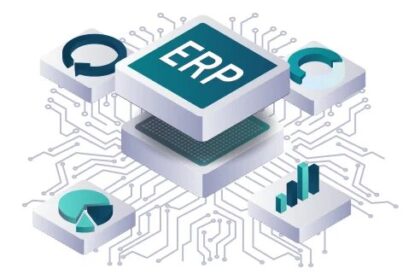The first and most difficult step towards a career in the Indian civil services is the Union Public Service Commission’s (UPSC) Civil Services Preliminary Examination. The journey starts now for candidates aiming for the 2026 cycle. It is impossible to compromise on strategic preparation, which is based on a thorough comprehension of the syllabus, exam pattern, and rigorous self-evaluation. This guide offers a thorough rundown of the UPSC Prelims 2026, with a particular emphasis on how important practice exams from sites like Testegy are to your success.
Tentative Exam Date for UPSC Prelims 2026
While the official notification will be released in February 2026, the UPSC Prelims exam consistently takes place around the end of May or early June. Based on this pattern, you can tentatively mark May 25, 2026 (Sunday) as a likely date. This fixed timeline provides you with a clear 12-15 month window to structure your preparation meticulously.
Understanding the Prelims Syllabus: Your Blueprint for Success
The UPSC Prelims consists of two compulsory papers:
- Paper I: General Studies (GS) – This is the qualifying paper for the Mains exam. Its syllabus is vast and includes:
- Current events of national and international importance.
- History of India and Indian National Movement.
- Indian and World Geography.
- Indian Polity and Governance.
- Economic and Social Development.
- Environmental Ecology, Biodiversity, and Climate Change.
- General Science.
- Paper II: CSAT (Civil Services Aptitude Test) – This is a qualifying paper where you need to score a minimum of 33%. It covers:
- Comprehension.
- Interpersonal skills including communication skills.
- Logical reasoning and analytical ability.
- Decision-making and problem-solving.
- General mental ability.
- Basic numeracy and data interpretation.
Eligibility Criteria: Are You Qualified?
Before diving into preparation, ensure you meet the basic eligibility criteria:
- Nationality: For the IAS and IPS, you must be a citizen of India. For other services, the criteria vary.
- Age Limit: You must be between 21 and 32 years old as of August 1, 2026. Age relaxations apply for reserved categories (OBC, SC/ST, PwBD, etc.).
- Educational Qualification: You must hold a degree from a government-recognized university. Candidates in their final year can also apply.
- Number of Attempts:
- General Category: 6 attempts.
- OBC Category: 9 attempts.
- SC/ST Category: Unlimited attempts until the age limit.
The Game-Changer: UPSC Prelims Mock Tests 2026 by testegy
Understanding the syllabus and exam dates is just the beginning; putting a plan into action when the pressure’s on is a whole different ball game. That’s where testegy’s UPSC Prelims Mock Test 2026 series really shines.
- Replicating the Real Exam Experience: testegy’s mock tests mimic the actual UPSC setting—complete with time limits, negative marking (a third of a point off for wrong answers), and the same question format. This helps you build endurance and master time management.
- Spotting Your Strengths and Weaknesses: By regularly reviewing your mock test results, you can identify which parts of the syllabus need more focus. This shifts your study approach from a one-size-fits-all routine to a more targeted revision plan.
- Gaining Insights from Detailed Solutions: The true benefit of a mock test comes from the analysis afterward. testegy offers thorough solutions and explanations, allowing you to grasp the reasoning behind each question and discover new concepts.
- Monitoring Your Progress: A series of mock tests lets you keep an eye on your score trends, providing a clear picture of your improvement and boosting your confidence.
In summary, preparing for the UPSC Prelims 2026 is a marathon, not a sprint. By blending a solid grasp of the syllabus and eligibility criteria with a disciplined approach to high-quality mock tests from platforms like testegy, you can turn your dreams into reality.
Frequently Asked Questions (FAQs)
Q1: When is the UPSC Prelims 2026 expected to be held?
A: While the official notification is due in February 2026, the UPSC Prelims is typically conducted in May or June. You can tentatively expect it around May 25, 2026.
Q2: What is the minimum qualification for the UPSC exam?
A: You must possess a bachelor’s degree in any discipline from a recognized university. Candidates appearing for their final year exams are also eligible to apply.
Q3: How many attempts am I allowed for the UPSC CSE?
A: The number of attempts varies by category:
- General Category: 6 attempts.
- OBC Category: 9 attempts.
- SC/ST Category: Unlimited attempts (until the upper age limit).
Q4: Is the CSAT paper difficult to qualify?
A: The CSAT is a qualifying paper (33% marks needed). While generally considered easier than GS, it requires consistent practice, especially in comprehension and reasoning. Neglecting it can be risky, so regular practice is key.
Q5: Why are mock tests like those from testegy so important?
A: Mock tests are a simulation of the real exam. They help you manage time, handle pressure, identify weak areas, and apply your knowledge practically. They are the most effective tool for self-assessment and course correction.
Q6: What is the marking scheme for UPSC Prelims?
A: For each correct answer in GS Paper-I, you score 2 marks. For every incorrect answer, 0.66 marks (1/3rd of 2) are deducted. There is no negative marking for unattempted questions. CSAT is also scored similarly but is only qualifying in nature.
Q7: Can I write the exam in my native language?
A: Yes, the UPSC question papers for the Prelims are set in both English and Hindi. However, it’s crucial to check the specific instructions in the official notification.



